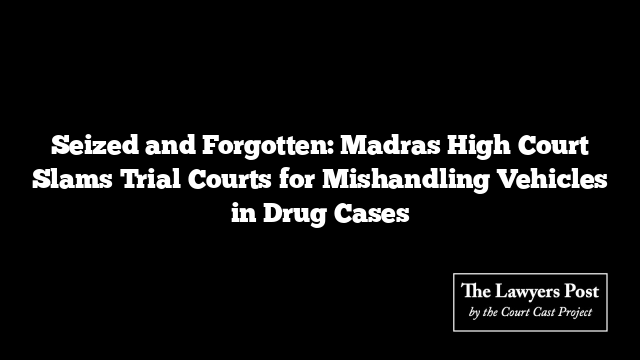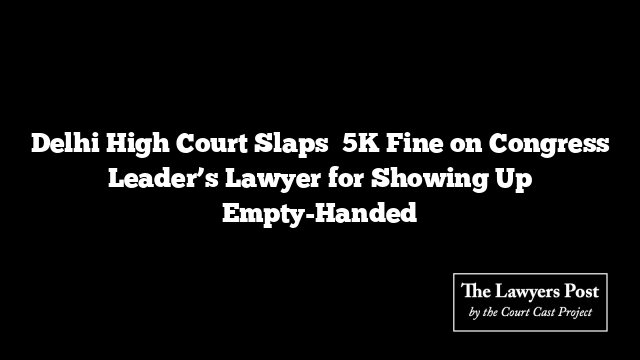In a sharp rebuke delivered on July 9, the Madras High Court called out a troubling pattern of judicial neglect—trial courts across Tamil Nadu are still clinging to outdated CrPC procedures when dealing with vehicles seized under the Narcotic Drugs and Psychotropic Substances (NDPS) Act. The Court made it clear: the law has changed, and it’s time the practice followed suit.
At the center of the matter was a vehicle confiscated in a 2021 NDPS case. Despite the accused being acquitted back in January 2023, the trial court refused to return the vehicle, citing a possible appeal that never materialized. No steps were taken toward disposal, and the vehicle remained in storage—abandoned in a legal limbo.
Justice B Pugalendhi, hearing the appeal, didn’t mince words. Trial courts, he said, were bypassing the NDPS Act’s dedicated disposal mechanisms in favor of outdated routes under Sections 451 and 452 CrPC—routes that are not only obsolete but legally inappropriate under the present statutory regime.
The Court underscored that the NDPS Act, along with the 2022 Disposal Rules, lays out a complete mechanism for handling seized assets. Disposal must go through the Drug Disposal Committee (DDC), not through ad hoc court orders. “Judicial shortcuts undermine the entire legislative intent,” the Court observed.
What’s worse, the judgment noted, is that vehicles often rot in godowns or open lots for years—neglected, unclaimed, and susceptible to theft or misuse. In many cases, traffickers never register the vehicles in their names, creating further ambiguity over ownership and legal standing.
Highlighting the recently enacted Bharatiya Nagarik Suraksha Sanhita (BNSS), the Court emphasized that Section 497 and its allied provisions now prescribe a time-bound protocol for the custody and disposal of property. Yet, courts were found to be operating as if nothing had changed.
This isn’t just about legalese—it’s about public assets left to decay and the dangerous precedent of allowing crime-linked property to be reclaimed without due process.
As a corrective, the High Court directed the Tamil Nadu Home Department and the Registrar General to issue circulars ensuring compliance with the NDPS Act and 2022 Rules. Investigating officers, prosecutors, and NDPS courts were instructed to strictly follow the prescribed statutory route.
In the specific case before the bench, the Court refused to return the vehicle to the appellant directly due to delays in the claim and lack of confirmed ownership. Instead, it ordered the trial court to process a long-pending request to move the matter before the Drug Disposal Committee—where it should have been in the first place.
The message from the bench was unequivocal: courts must not serve as loopholes to reclaim vehicles tied to the drug trade. The law provides a roadmap—follow it.





